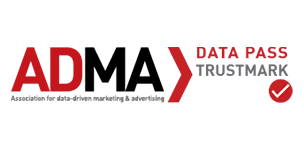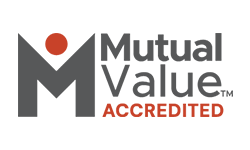Privacy Awareness Week (PAW) is an annual event to raise awareness of privacy issues and the importance of protecting personal information. The Office of the Australian Information Commissioner (OAIC) runs PAW in conjunction with state and territory privacy regulators and the Asia Pacific Privacy Authorities forum.
The information and technology landscape continues to become more complicated, and new technologies require businesses, government agencies and individuals to keep pace. Engaging more in the online environment presents extraordinary opportunities, as well as challenges. PAW 2023 is being held from Monday 1 May to Sunday 7 May, with the theme ‘Back to Basics’ serving as a reminder of the simple steps that can be taken to protect your personal information.
Aligned with this year’s theme, the OAIC has prepared Privacy 101 comprising of 10 privacy tips, and an online quiz to test your skills.
Value your personal information
Treat your personal information like the asset that it is. Only ever share what is necessary and for good reason.
Check before sharing
Before sharing any personal information, check and make sure you trust who you share your information with. Scamwatch has great resources to help you spot ‘fakes’.
Read the fine print
When sharing your personal information with an organisation, it’s important to be clear on how it will be used. Read an organisation’s privacy policy and be sure you understand their privacy practices. If you don’t understand them, you should ask them to explain it.
Update your privacy settings
Many websites, apps and devices share personal information by default. However, you can choose to select ‘no’ or simply not continue using those apps and websites.
Make an informed choice. Say ‘no’ to cookies (or delete them) if that is your preference, and consider limiting things like location tracking.
Protect your accounts
Implement multi-factor authentication when it’s an option and use passphrases to protect your accounts. Passphrases are made up of 4 or more words, making them longer (and safer) than a traditional password. A passphrase is harder for someone to guess but easier for you to remember.
The Australian Cyber Security Centre (ACSC) has a wealth of information and tips about protecting yourself online.
Protect your devices
Ensure you are installing security updates on your devices and apps as soon as they become available. You can opt to turn on automatic updates, so you don’t miss out on these important updates.
The ACSC has useful advice on updating devices and performing regular backups to keep your devices secure.
Social media caution
Think before you share on your social media. Posts, status updates and other social media interactions can reveal a lot about you. Unfortunately, scammers can use this information to steal your identity or cause harm in other ways.
To protect yourself on social media, firstly, consider making your social media accounts private. Secondly, ask yourself before you share “Is this information necessary and safe?
Tidy up
Over time, we all collect quite a large amount of information about ourselves. To avoid information getting into the wrong hands, make sure you destroy personal information before throwing it away and wipe data from old devices before recycling them.
This same practice should be applied online – make sure you delete accounts that you no longer need and treat your email like you do your confidential papers.
Act quickly if things go wrong
Sometimes things can go wrong. If you believe your privacy is breached, act quickly to minimise the risk of harm. Steps you can take may include:
- Changing your passwords or passphrases
- Contacting your bank to let them know
- Monitoring your accounts for suspicious activity
- Being on the lookout for scam calls, texts or emails
- Checking your credit report
Talk privacy
Talk about privacy, or share this article, with your family and friends to help champion privacy awareness.
As always, G&C Mutual Bank remains committed to your security and privacy online. To understand how we manage your personal information, please visit our Privacy page. To understand how we help to keep you safe, please refer to our Security page and for information on common scams and how to protect yourself, please visit the News section of our website.
Need help?
If you believe someone has gained access to your personal information, even if it appears unrelated to your finances, you should contact your bank immediately. A timely response can be critical in giving you the best chance to stem any loss.
- If you have concerns about your G&C Mutual Bank account contact us on 1300 364 400.
- If the scam occurred on social media or a legitimate website, report it to the platform involved. For scams on Facebook, Messenger, WhatsApp and Instagram, see this step-by-step guide for reporting scams on Facebook services.
- You can find more information around protecting your personal information at the Privacy Awareness Week website





